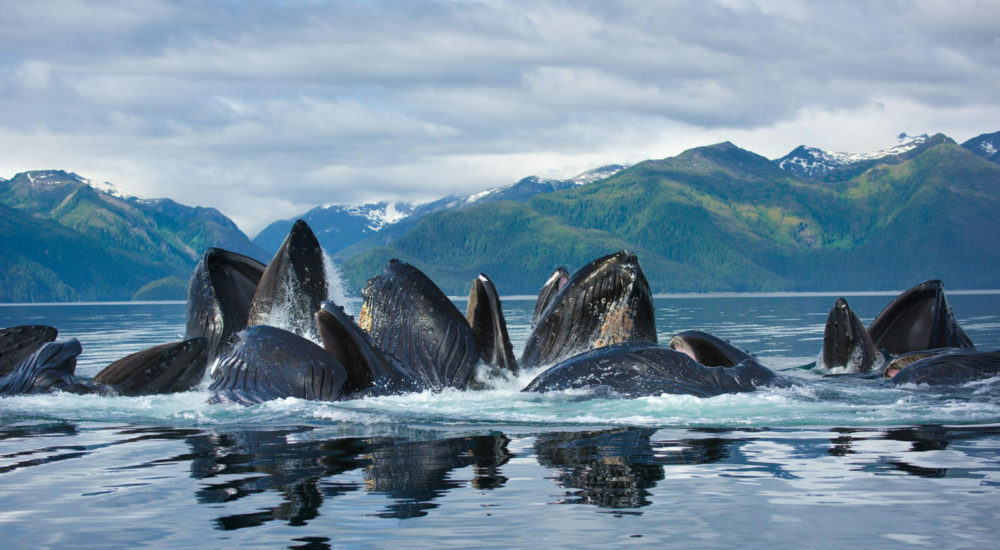It’s hard to understand why there is not widespread concern over a headline like “Deep-sea mining may soon ease the world’s battery-metal shortage” even if The Economist insists that “Taking nickel from rainforests destroys 30 times more life than getting it from the depths”. How would they know? Certainly humanity’s approach to fishing out the world’s oceans doesn’t inspire much confidence although perhaps it could be argued that there’s a lot less out there to kill thanks to “bottom trawling” and other such practices. Like putting wind farms in endangered whale habitat, for instance.
We’re not sure what happened to The Economist, once a wryly sceptical and well-informed publication. But now it gushes like some 14-year-old at a Greta Thunberg event:
“Pushed by the threat of climate change, rich countries are embarking on a grand electrification project. Britain, France and Norway, among others, plan to ban the sale of new internal-combustion cars. Even where bans are not on the statute books, electric-car sales are growing rapidly. Power grids are changing too, as wind turbines and solar panels displace fossil-fuelled power plants. The International Energy Agency (IEA) reckons the world will add as much renewable power in the coming five years as it did in the past 20.”
Electric-car sales are sluggish, and wind and solar are not displacing fossil fuel. Least of all in, what’s that place again? China? No. It’s the planet Earth.
Take a good hard look at where the minerals for these fabled batteries are coming from now, and the environmental devastation that accompanies brutal labour practices. And now tell us again why these people should have a go at the world’s battered oceans. Whose complexities we do not begin to understand well enough to come up with another of those suspiciously round, talking-point-like statistics about it being 30 times better. Not 27.8. Not 14.3. Not a bunch. Thirty on the nose.
That news story ran in the “Science & Technology” section of the print edition, with the headline “Raiding Davy Jones’s locker” which suggests that somebody had some sort of qualms. But it wasn’t senior staff, as The Economist followed it up with a “leader”, British for “editorial” headed “The world needs more battery metals. Time to mine the seabed”.
It insisted that “Getting nickel from the deep causes much less damage than getting it on land”. Which again we can’t really know. But even if true, both might cause far more harm than they’re worth. Never mind. Full steam ahead, or full battery charge or something:
“Burning fuel to move humans and goods by road produced about 6bn tonnes of carbon dioxide in 2021, 16% of global energy-related emissions. If countries are to curb the increase in the world’s temperature, they must stop these emissions. That means building battery-powered vehicles which run on electricity rather than internal combustion. And that in turn means mining and processing metals on an unprecedented scale.”
Oh. Just that. And after lunch, world peace. Or world devastation. Apparently:
“The International Energy Agency reckons 80m tonnes of it must be mined between now and 2040 if the world is to hit its climate targets. That is more nickel than has ever been mined, and approaches the 100m tonnes of global unmined reserves measured by the United States Geological Survey.”
If it were a business prospectus that notion would raise red flags. But no worries:
“Nickel sits on the seabed in potato-sized lumps called nodules, bound up with cobalt, copper and manganese, which are also present in quantities more than sufficient to meet the needs of the green-energy transition. The nodules were created over millions of years as metal particles drifted down and clumped together on the sea floor. They can be vacuumed up using bus-sized robots, then pumped to a ship on the surface.”
The leader does concede that some say strip-mining the seabed poses risks:
“Conservationists say this process poses grave environmental risks. Carbon will be kicked out of the seabed and make its way into the atmosphere, they argue, generating more warming; life-choking sediment plumes will be created by the collection system and hitherto untouched CCZ [“Clarion-Clipperton Zone”] ecosystems will be destroyed, disrupting food webs and damaging fisheries. But on closer examination many of these arguments are spurious.”
Right. Like the one where “conservationists say” anything in unison, any more than “scientists” do. Though if the former did, this one might be it. (Including the usual thing where any plan to limit carbon emissions turns out to spew carbon.)
In fact, by coincidence one of Scientific American’s E&ENews piece not two weeks later warned that “Deep-Sea Mining Can Chase off Marine Life for Months” and that:
“Even small deep-sea mining operations can have a significant effect on marine life, a new study has found, just as such mining operations are poised to begin with no industry rules in place”.
And in this case we agree.
By further coincidence Nature also warned a few days later that merely exploratory oil drilling at the mouth of the Amazon could damage nearby reefs. So can we just suck up the deep-sea floor and have it be fine? The Economist blithely concludes that we can and must:
“Member states should therefore seek to finalise the rules as soon as possible, and then to monitor the impact on the CCZ and surrounding ocean as mining takes place. The reward is a cooler planet that hosts a greater abundance of life.”
Because everybody knows cooler temperatures lead to flourishing life forms, which is why the glaciations saw so much more greening than the Cretaceous. And that once a bunch of governments start ripping up the seabed, they will “monitor the impact” and stop if it looks bad.



Crazy how much more insane the climate/insane get every day. I subscribed to The Economist for 25 years but last year was finally enough and I cancelled the subscription, they are no longer a news magazine. May as well subscribe to Ken&Barbie, it likely has more real info in it.
They’re happy to propose a hugely destructive process but go tilt when someone want to do a sound survey that leaves no discernible impact? WTF
Typical backwards thinking. Do some of these so-called environmentalists ever really listen to themselves or double check things they've said in the past?
They complain about noise made by the world's Navy vessels, yet care nothing for the noise of deep sea mining vessels? Wouldn't mining the sea floor generate noise from the sea bed all along the mining or suction tube up to the surface? I can't even fathom that kind and volume of noise!!
I've said it before: Obtuse, one dimensional thinkers!! (I thought MORONS was a little harsh)😁